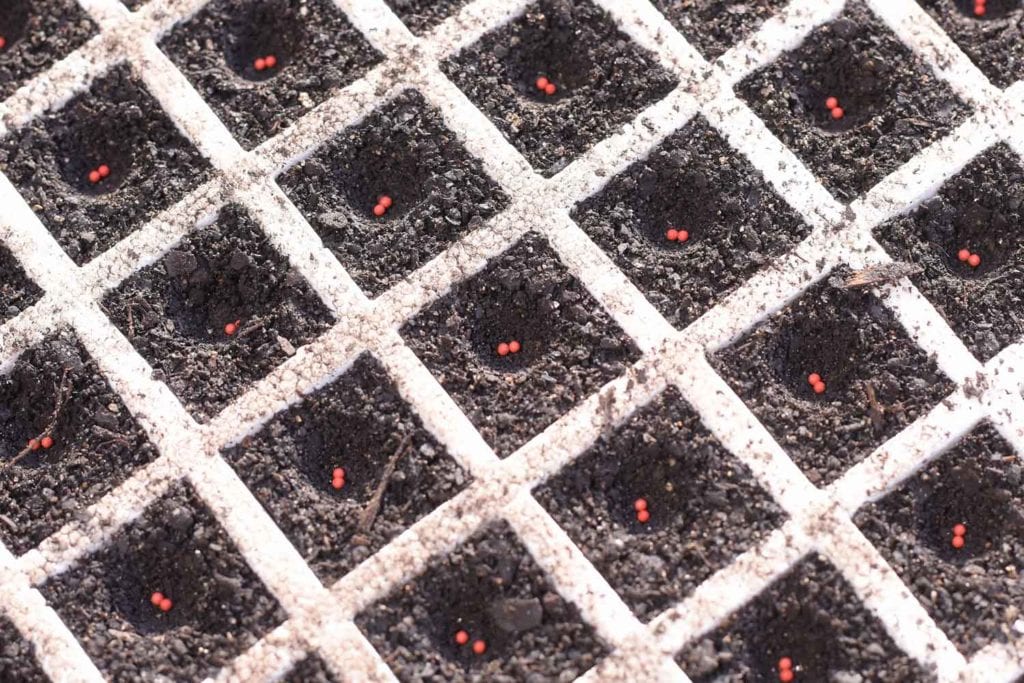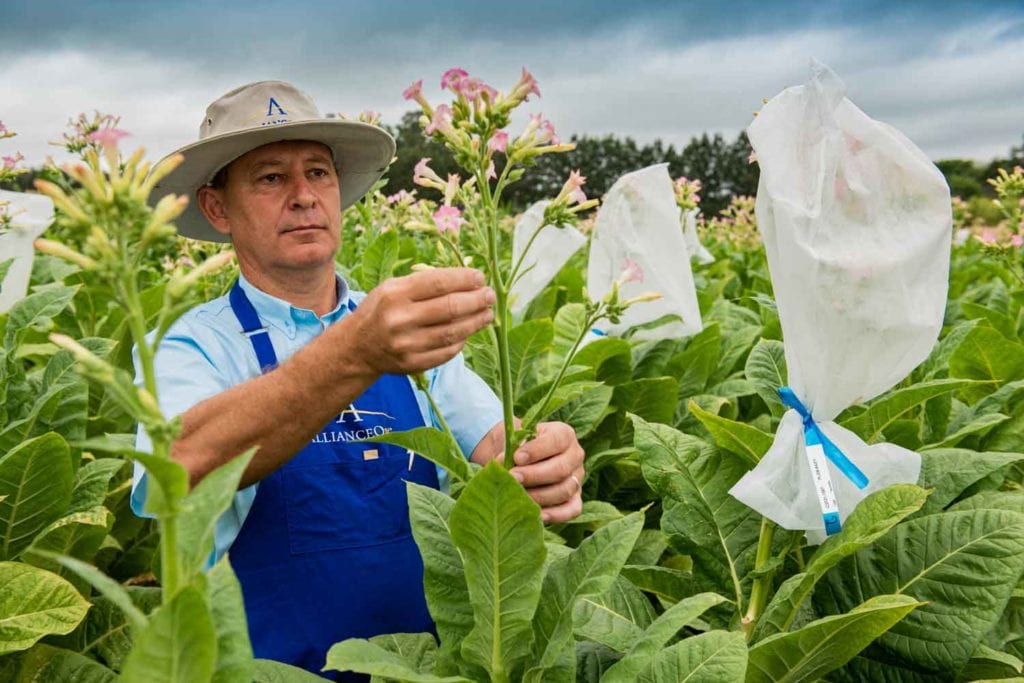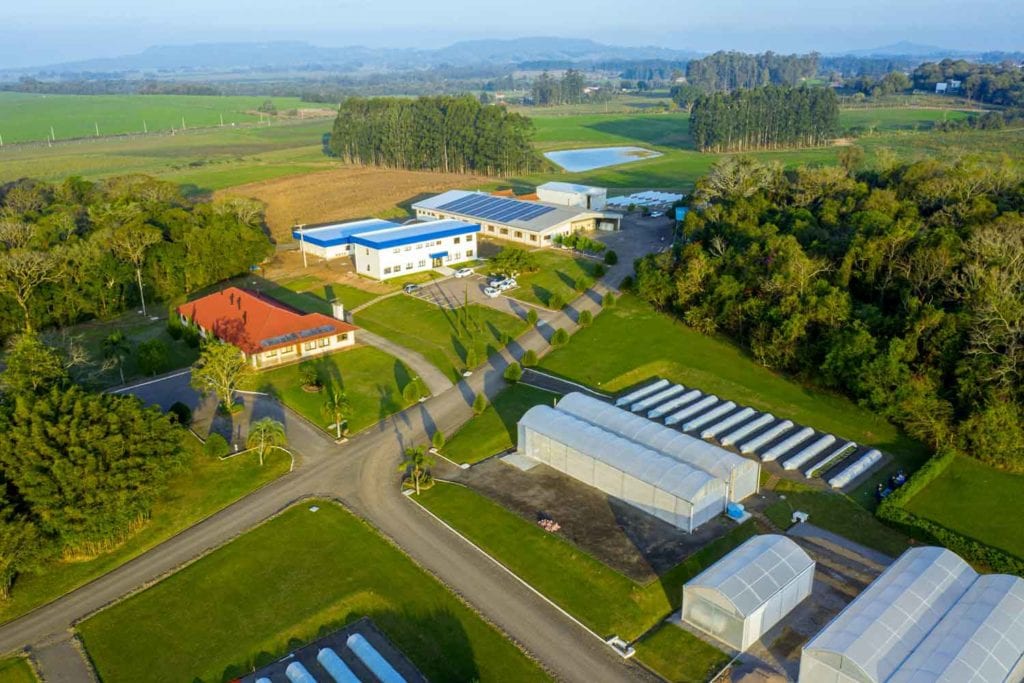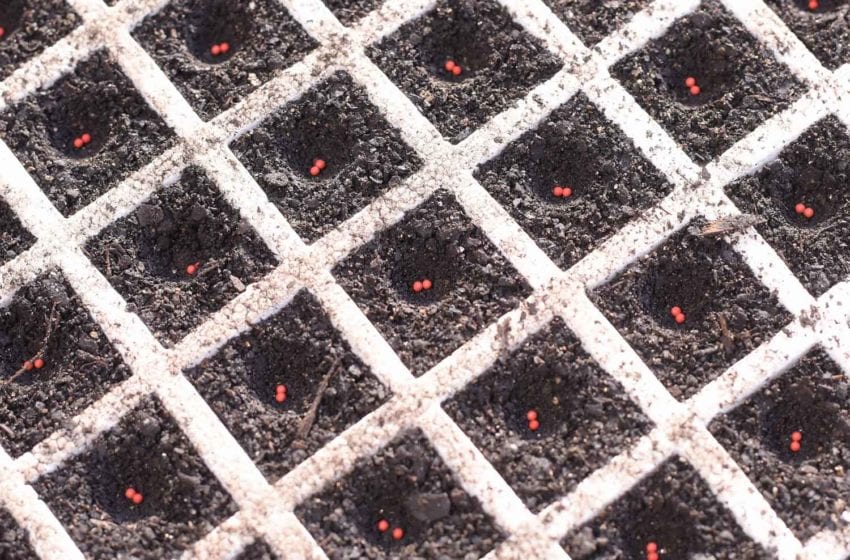
Alliance One International believes there is opportunity for leaf suppliers who can offer tobacco produced in a sustainable and compliant manner.
By George Gay
It seems likely that many businesses will not, for the foreseeable future at least, resume all the working methods they employed before the onset of the coronavirus pandemic. This was to be expected. Businesses have been forced to examine their operations closely in developing strategies to overcome hurdles thrown up by the pandemic, and this self-examination was always going to come up with ideas that resonated beyond the time when we eliminate or learn to live with Covid-19.
For instance, throughout a wide range of tobacco industry businesses, high levels of travel have long involved economic and environmental costs that, but for inertia, could have been reduced by utilizing modern communications. Now, the pandemic has nudged into sharper focus the rationale surrounding travel and communications—along with other aspects of doing business.
Alliance One International (AOI) provides a case in point, especially given that it is part of the leaf tobacco sector in which travel has long been part of the fabric. In an email exchange last month, the company said that while it expected its business travel to pick up again, it did not expect it to return to the level that it was prior to the arrival of Covid-19. “The past year has demonstrated how effective teams can be when working remotely and using technology, and we expect that trend to continue,” said Alex Strohschoen, president of Alliance One. “That said, there is value in face-to-face interaction, and we look forward to being able to collaborate with our colleagues and customers worldwide when it is safe to do so again.”
While Alliance One, like all businesses, was last year caught up in managing the changes made necessary by the spread of Covid-19 to pandemic status, it was involved, too, in well-publicized changes to its parent company, Pyxus International, which in June filed voluntary petitions for relief under Chapter 11 of the U.S. bankruptcy code and then, in August, was able to announce that it had completed its financial restructuring and emerged from Chapter 11. However, Strohschoen said the changes to Pyxus had been largely tied to other divisions of the company, not necessarily Alliance One. “We have restructured, but those changes were driven by a desire to improve the efficiency and effectiveness of the business rather than a result of any changes at the parent company.”

Sustainability and Compliance
The need for increased efficiency, however that is manifested, is a must for a sector in which demand for its product is presumably on a long-term slide. And Alliance One believes there are opportunities out there beyond volumes. “We believe there is a good opportunity for leaf suppliers who can offer a product produced in a sustainable and compliant manner, and Alliance One is a leader in this space,” Strohschoen said, before adding that consumers of all types of tobacco products, including combustible cigarettes, wanted to know how their products were manufactured and where the various components came from.
At the same time, regulation was evolving, and bodies such as the EU were exploring rules that would require corporations to share publicly more information about their supply chains, Strohschoen said. And, in the case of cigarettes, complying with such rules could be achieved only by working with suppliers such as Alliance One.
In addition, as major manufacturers looked to reduce complexity in their operations, Alliance One expected that they would begin to reverse the vertical integration of their supply chains.
In recognizing these trends, Alliance One says it has been investing in its sustainability and agronomy departments. The company’s objective, Strohschoen said, was the long-term success of the business, which would be achieved by meeting the balance between “the needs and expectations of our various stakeholders and those of our company” in a manner that was underpinned by a strong commitment to managing the business ethically and operating with integrity in all aspects of the business.
The company says that it is primarily focused on managing its impact in those areas directly related to its business. “This includes managing our carbon emissions to reduce environmental impact, responsibly managing water and waste, providing safe and healthy workplaces for our employees, providing a satisfying and inclusive working environment, supporting local communities, upholding human rights and working to enhance farmer livelihoods,” said Strohschoen.

Research and Deployment
Alliance One contracts tobacco from growers in 20 countries but has a presence in about 30 countries and sells to customers in about 90 countries. It primarily contracts flue-cured, Burley and oriental tobacco, but it works also with other varieties, including air-cured, sun-cured and dark-fired. About 50 percent of its employees directly interact in some capacity with about 300,000 farmers across five continents, an operation that involves about 1,000 trained agronomists and field technicians conducting more than one million farm visits annually.
Of course, it is important to realize that farming these days is not about dirty fingernails, or not only about dirty fingernails. Global agronomy director, Helio Moura, said that Alliance One had established a global research and development structure to support agronomic research, development and deployment of new technologies, with capabilities that included agronomy science, breeding and seeds, and development and deployment training.
“Since 2005, the Alliance One Brazil (AOB) operations have managed an R&D operation which has supported the development and release of new technologies around the world,” said Moura. “And in 2020, the company adjusted its global structure so that the AOB R&D facility has become AOI’s Global Research, Development & Deployment (GRD&D) Center. The GRD&D Center, located on an 82 hectare existing company property in Passo do Sobrado, Brazil, was officially repurposed in December 2020.
“We have all the tools necessary to accelerate the deployment of cutting-edge technologies globally in order to increase farmer profitability, improve product quality and comply with regulation, which enhance the sustainability of our global tobacco production chain.
“In addition to the GRD&D Center in Brazil, we are maintaining an R&D hub in Turkey to focus on oriental tobacco. Alliance One primarily produces oriental tobacco in Europe, and by conducting research on the crop from the region in which it is grown, we can increase the speed at which we can bring solutions to the market.”
We must help the farmer improve their profitability to address other concerns, such as child labor, deforestation, etc.
Helio Moura, global agronomy directior, AOI
Future-Proofing Farmers
The need for such research and the dissemination of the results that stem from it is predicated on a demand for tobacco and, though Alliance One did not discuss volumes, it looks likely that demand will fall in the future unless in the unlikely event that the uptick in smoking apparently caused by smokers’ reactions to the pandemic and stories stemming from it turns into a medium-term or even long-term trend. At the same time, noises coming out of the U.S. seem to indicate that that country at least could be heading into a future of very-low-nicotine tobacco: tobacco that presumably not all tobacco-growing countries will be able or willing to produce. So the question arises as to what support will be available as, presumably, increasing numbers of farmers are forced to abandon tobacco growing.
“Enhancing farmer livelihoods is a priority for our entire business,” said Moura. “As demand for tobacco changes, we are focused on helping farmers continue to improve their efficiency as well as diversify their crops. By helping farmers improve their crop yield, quality and management, we can help maximize their profitability but also improve the quality of the life across environmental, social and cultural pillars—thereby creating a truly sustainable crop that is beneficial for stakeholders throughout society. When considering this approach, it is important to recognize that the economic lever is the main one which supports our strategy. We must help the farmer improve their profitability in order to address other concerns, such as child labor, deforestation, etc.”
Alliance One says that this is not a new initiative but one it has been involved in for quite a few years.
“In Malawi, we have introduced growers to a variety of new-to-them crops, including groundnuts, maize and soya, and provided the agronomic expertise to enable them to successfully bring those products to market,” said Moura.
“In Brazil, we have partnered with Bayer Crop Science to provide quality maize seeds and agronomic support to smallholder tobacco farmers. Approximately 75 percent of our contracted Brazilian farmer base produces maize along with tobacco. By providing them with high-quality agronomic maize packages, we are helping them improve the quality and yield of the maize crop. We implemented a pilot project in Brazil during the 2020 growing season with 2,300 farmers and found that farmers appreciated the support and guidance we provided. As a result, we will implement this project across the country’s entire base of farmers in the 2021 season.
“By providing the necessary support to enhance the crops that they are already growing, we are providing our contracted farmers with the tools they need to diversify their income and create an additional food source. In addition, crop diversification is becoming increasingly important as extreme weather patterns impact crop production. We are excited about the potential for this project and the potential for AOI to scale it at a global level in the future.”
Pandemic Exit Strategy
Finally, it is impossible these days to ignore the pandemic, and nowhere is this more so than in the case of a company with a global presence. At any one time, some of these countries are going to be suffering another wave of infections and hospitalization; some are going to be in lockdown while others are going to be entering or leaving lockdown, and some are going to have achieved high levels of vaccinations while others will not have done so.
“At Alliance One, we have taken immense steps to protect the health and wellness of our employees, and we are continuously adjusting our plans as we respond to the evolution of the virus and its impact on our operations,” said Strohschoen. “Some of the many actions we have taken include changing shift size and keeping employees working in the same ‘pods,’ adjusting work hours, requiring employees to wear face masks and socially distance, implementing work-from-home procedures and better enabling remote work through technology. … We also worked with farmers throughout the world to provide PPE and offer guidance on how to adjust ways of working to keep farmworkers safe.
“At the same time, we implemented these measures so that we could minimize the spread of Covid within the operations and enable the operations to continue running. We had to make sure we could keep buying, processing and shipping tobacco so that we could meet customer requirements … Operationally, we have accelerated some of our internal processes to enable us to ship more efficiently and provide additional time to allow for longer logistical processes.”


